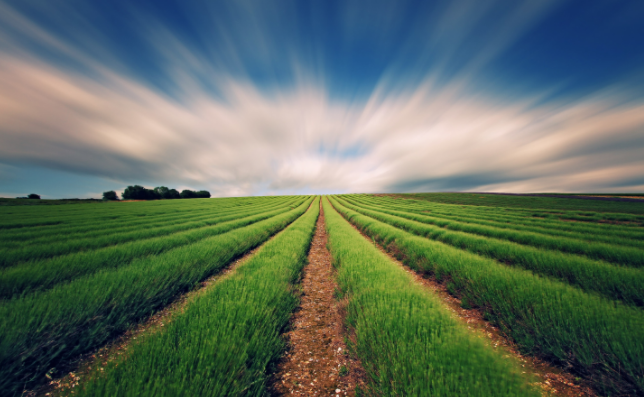Grantham Project
The Impact of Climate Change on Global Food Production.

16 August 2021
Key Facts
- Funding body: The Grantham Foundation for the Protection of the Environment
- Project duration: 1st January 2016 - 31st March 2020
- Project Leaders: Paul Ekins and Chris Rapley
Overview
Land degradation, together with climate change, is expected to increase the risk of food security in many regions of the world. Land degradation reduces the quality of the soil, which declines crop yields, production volumes and farming incomes. Land degradation and climate change are interlinked processes. Recent literature suggests that land degradation has the potential to influence the magnitude and direction of climate impacts and the effectiveness of adaptation options.
The project has sought to explore a number of linked issues:
- The effect of the global temperature increase to date, and of changes in precipitation to date, on crop yields, using econometric estimation
- The effect of soil water erosion on crop yields, using the crop model EPIC.
- The effect of land degradation on crop yields in the US
- The effect of changes in crop yields on food prices
- The price and production effects of water erosion and climate change
- Outputs
Agnolucci P., C. Rapti, P. Alexander, V. De Lipsis, R. Holland, F. Eigenbrod, P. Ekins. (2020). Impacts of rising temperatures and farm management practices on global yields of 18 crops. Nature Food, pages 562–571
- Carr, T., J. Balkovic, P. Dodds, C. Folberth, E. Fulajtar, and R. Skalsky. (2020). Uncertainties, sensitivities and robustness of simulated water erosion in an EPIC-based global gridded crop model. Biogeosciences, 17, 5263–5283
- Jang W.S., Neff J.C., Im Y., Doro L., Herrick J.E. (2020). The Hidden Costs of Land Degradation in US Maize Agriculture. Earth’s Future, doi.org/10.1029/2020EF001641
- Agnolucci P., De Lipsis, V. (2019). Long-run trend in agricultural yield and climatic factors in Europe. Climatic Change, doi:10.1007/s10584-019-02622-3
- Bae, JH., J Han, D Lee, JE Yang, J Kim, K Jae Lim, JC Neff, WS Jang. (2019). Evaluation of Sediment Trapping Efficiency of Vegetative Filter Strips Using Machine Learning Models. Sustainability, 11(24), 7212
- Jang, W.S., Lee, Y., Neff, J.C., Im, Y., Ha, S., Doro, L. (2019). Development of an EPIC parallel computing framework to facilitate regional/global gridded crop modeling with multiple scenarios: A case study of the United States. Computers and Electronics in Agriculture 158, 189-200
- Webb, N.P., Marshall, N.A., Stringer, L.C., Reed, M.S., Chappell, A., Herrick, J.E. (2017), Land Degradation and climate change: building climate resilience in agriculture. Frontiers in Ecology and the Environment, 15-8: 450-459 DOI: 10.1002/fee.1530
Models:
- ENGAGE-Land: A detailed land use version of the UCL Environmental Global Applied General Equilibrium model has been developed to assess the impact of climate change and land degradation on global agriculture. The ENGAGE-land model includes agro-ecological zones, first generation biofuels and irrigation.
- EPIC-IIASA: The global gridded version of the Environmental Policy Integrated Climate (EPIC) crop model, EPIC-IIASA, has been updated to simulate soil sediment loss while accounting for the daily growth of maize and wheat under different field management scenarios.
- People
- Collaborators
- Links
- Impact
- This project seeks to address one of the most important of global challenges – the provision of sufficient food for a growing human population – in a way that will have a real positive impact on the prospects of meeting the challenge effectively.
 Close
Close

